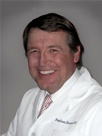The Great Cholesterol Myth - Questions and Answers with Dr Sinatra

Questions and Answers with Dr. Stephen Sinatra related to his book, The Great Cholesterol Myth.
Dr Sinatra's website is: www.heartmdinstitute.com
1. What led up to you writing this book?
A new illness has been fabricated, first in America, and then spread like some bad seed around the world, called hypercholesterolemia. The book was written to dispel this fabrication and alleviate the unnecessary fears that many have when their doctors tell them they have "high cholesterol."
The book also clearly differentiates who should take statins and who shouldn't. And importantly, it puts forward the real risk factors for heart disease. The real travesty is that the focus on cholesterol has taken us away from the real issues that cause heart disease.
2. Are there cholesterol numbers that are indicative of a healthy or unhealthy heart?
I generally like to see higher levels of HDL cholesterol even though future research will demonstrate that some forms of HDL can be dysfunctional. For me, the most significant numbers are triglycerides, HDL, blood sugar, and hemoglobin A1C.
For example, a high triglyceride level and a low HDL is a red flag for cardiovascular disease. The focus has been on the LDL cholesterol as the so-called "bad cholesterol." That's nothing but a misleading and gross oversimplification. There are several forms of LDL, some better than others.
Simple blood lipid tests aren't very valuable. You want your doctor to order an advanced test that provides more information, such as the VAP or Spectracell test. They let you know the overall pattern of your cholesterol. They tell you if your LDL pattern is predominantly benign or more prone to inflammation/oxidation.
3. What other markers are important for heart health?
Inflammatory mediators are extremely important. These include c-reactive protein, ferritin, fibrinogen, homocysteine, LP(a), and VLDL3, the latter a highly-inflammatory triglyceride particle. Such indicators are involved in initiating the inflammatory process that leads to plaque and coronary artery disease.
4. When are statin drugs beneficial? Are they worth the price and side effects?
Statin drugs are best for middle-aged men with documented coronary disease, generally from 40 to 70, and especially those with low HDL. They are worth the price and the potential side effects, as this group has the greatest to gain and the least to lose.
5. What should natural practitioners be concerned with regarding patients' cardiovascular health? What is overlooked?
The recognition of metabolic syndrome and appropriate solutions for cure are extremely important. For example, a young woman in her 30s may present to a practitioner as slightly hypertensive, overweight, with a waist circumference greater than 35 inches, borderline high blood sugar, high triglycerides, and HDL on the low side.
A non-mindful practitioner may jump to treat the high blood pressure, the weight, the borderline blood sugar, and the high triglycerides with several or more drugs when simple lifestyle modifications will do the trick. A simpler approach is often overlooked by conventional practitioners, and even some alternative health professionals.
I would also say that if an alternative doctor sees a patient complaining of chest discomfort or shortness of breath, that patients should always be referred to a cardiologist to make sure there is no coronary artery disease present.
6. What supplements do you recommend for a healthy heart, and a sick heart?
I recommend supplements for everyone but more so, and with higher doses, for people with a sick heart. I typically recommend a basic multi-vitamin/mineral combination, coenzyme Q10 (50-100 mg), and omega 3 essential fatty acids (1-2 grams). That's on a daily basis.
For a sick heart, I would use at least 200-400 mg of coenzyme Q10, and add 400-600 mg of magnesium, 5 grams of ribose 3 times a day, and 2-3 grams of carnitine. Sometimes in sick hearts I'll also use hawthorn berry and taurine.
7. What is the role of sugar and refined carbohydrates on cardiovascular health?
Not a good role! Sugar and refined carbohydrates are the real villains. In excess, they generate surging insulin levels that cause inflammation in the thin and fragile lining of blood vessels. Sugar causes not only accelerated aging and oxidative stress but sets the stage for inflammation, the real cause of heart disease.
8. What foods should be avoided and what diet do you recommend?
The taboo foods or the foods that you must decrease are the inflammatory foods including sugars, high fructose corn syrup, sweets, pastas, cookies, donuts, breads, crackers and almost anything made with white flour or wheat.
I recommend the Pan Asian Mediterranean Diet, that features foods from the Mediterranean basin and the Pacific rim. These foods include wild fish, nuts, fermented soy, fresh fruits and vegetables, olive oil, seaweed, and small amounts of meats which are supportive for cardiovascular health.
An 80 percent plant-based diet with other protein sources coming from fish, range-free meats such as lamb, beef, bison, and turkey, with free- range eggs, and occasional organic dairy including cheeses, is a great place to start.
Stephen T. Sinatra, M.D., F.A.C.C. (Fellow of American College of Cardiology), F.A.C.N. (Fellow of American College of Nutrition) is a board-certified cardiologist and certified bioenergetic psychotherapist with forty years of clinical experience treating, preventing and reversing heart disease.
He is also certified in anti-aging medicine and nutrition and the host of the Internet's leading integrative cardiology website for the public, www.heartmdinstitute.com
February 2013






